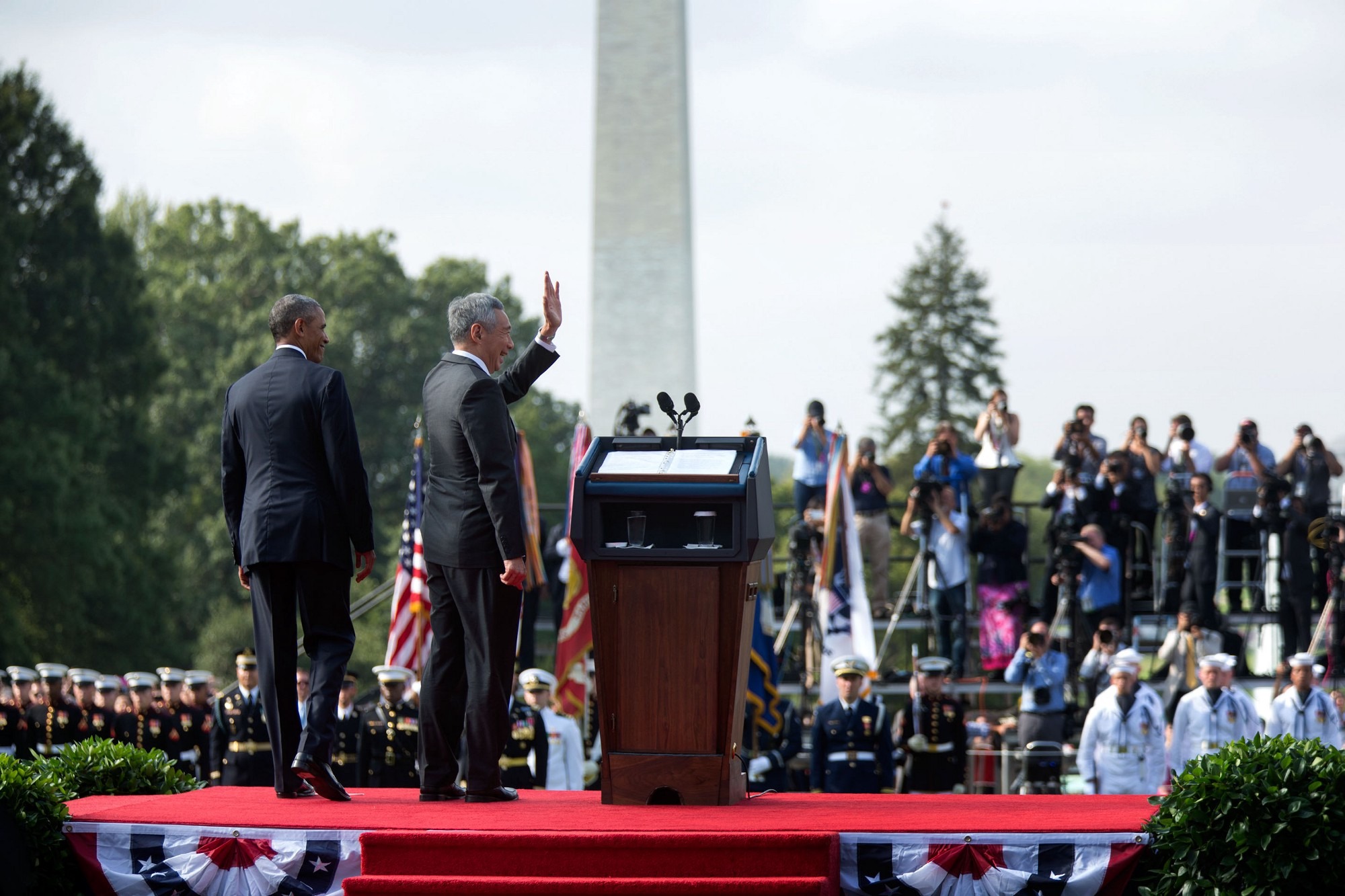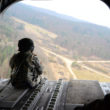Lawrence Jackson
While final preparations were under way for the 51st anniversary of Singapore’s independence on August 9, the White House hosted the nation’s Prime Minister Lee Hsien Loong at a lavish state dinner—the highest honor the U.S. government can give a visiting dignitary.
Singapore is a tiny island country in Southeast Asia, but it has managed to nurture an outsized reputation in many areas, from education to clean governance. The honor from President Barack Obama is testament to the role Singapore has played as a friend to the United States in the Asia-Pacific region.
As Prime Minister Lee settled down to American wagyu beef tenderloin in Washington on August 2, 33-year-old blogger Roy Ngerng was back home in Singapore sending out job applications and figuring out how to pay Lee the next monthly installment of damages ordered by a Singapore court. The premier successfully litigated a defamation suit against Ngerng in March 2016, citing a blog post in which Ngerng compared his leadership of a sovereign wealth fund to the illegal misappropriating of funds at a Singapore megachurch. According to the arrangement hammered out by lawyers, Ngerng will be making payments on the full $110,238 until 2033. (Figures cited are in U.S. dollars.)
The many compliments exchanged during the official visit of course elided Prime Minister Lee’s increasing crackdown on civil liberties. As reports emerge of democracy receding around the world, the government’s recent actions have Singaporean activists worried.
Roy Ngerng knew of the restrictions and tight state control, but he never expected to become so well acquainted with that reality until Lee took legal action against him in 2014. It was the first time an independent blogger was sued by a Singaporean prime minister; such suits are usually reserved for journalists, media organizations and opposition politicians.
“Before I was sued, I was actually naïve about the situation. . . . I read about politicians who were sued and even another blogger who was charged, but I believed that I would not be persecuted,” Ngerng told The Washington Spectator.
“I had looked at myself as a simple individual who was asking questions,” he added. “I did not recognize that on a political level, that was not how the ruling party looked at it.”
Ngerng’s punishment isn’t the only episode advocates cite when talking about clampdowns on rights like freedom of expression in recent years.
Activists began to observe increasing attempts to exert control; the “new normal” had a limited lifespan.
Singapore’s 2011 general election has often been referred to as a “watershed election.” The ruling People’s Action Party (PAP) secured 60 percent of the vote; an enviable result for political parties in more competitive democracies, but the worst-ever performance for a party that has dominated Singaporean politics since 1959.
The result, indicative not just of unhappiness among the electorate, but also a willingness to act upon it at the ballot box, led to promises of a “new normal”—a (slightly) more competitive political landscape, and more space for a plurality of views and opinions in the public sphere. The government launched “Our Singapore Conversation,” a massive consultation exercise aimed at demonstrating a willingness to allow citizens a more participatory role in national policy.
This new openness, accompanied by the free, accessible platforms provided by social media networks, emboldened Singaporeans. Comments, groups, and websites covering and discussing political issues proliferated on Facebook, giving rise to conversations that many would have previously steered clear of, at least in public.
“After the big setback for the PAP in the 2011 election, they said they would ease up because that was the people’s message to them. The result was stronger, bolder criticism online and offline,” playwright and arts activist Tan Tarn How observes. “It was more democratic, which meant that it was messy, difficult to control and manage, and required being constantly on your toes.”
Perhaps the powerful elite found this messiness undesirable and inconvenient. Over time, activists began to observe increasing attempts to exert control; the “new normal” had a limited lifespan.
In 2013, the Media Development Authority announced a new licensing regime for popular websites posting Singaporean news, requiring such websites—as identified by the authorities—to post a $37,080 performance bond, as well as undertake to remove any content within 24 hours that was deemed in breach of regulations. The rules were criticized for being vague and arbitrary, as well as having been introduced without consultation or debate in Parliament.
Other cases continued to spark concern: Cherian George, a prominent academic studying Singapore’s political and media scenes, was denied tenure at the Nanyang Technological University, effectively ending his employment at the institution. Alex Au, an established blogger, was charged with contempt of court, and eventually fined $5,975. Teen blogger Amos Yee made headlines when he was arrested and charged with wounding religious feelings and distributing obscene material, after he posted on YouTube an expletive-laden rant criticizing both Christianity and the late Lee Kuan Yew—Singapore’s first prime minister and father of the current one. Yee was eventually given a four-week prison sentence, but has since been charged with new offenses and is due to appear in court in mid-August for a new trial.
In 2014, the Media Development Authority refused to classify the award-winning documentary To Singapore, With Love, effectively barring it from being publicly screened in the country. The film, which features accounts of Singaporean political exiles, was deemed to “undermine national security.” Sonny Liew’s graphic novel The Art of Charlie Chan Hock Chye, in which he offered an alternative account to the establishment historical narrative, was also considered to have “sensitive content”, and had its publishing grant withdrawn. (Ironically, these actions put both pieces of work in the limelight, attracting more attention than they would have received otherwise.)
This year, in early June, Ngerng and Teo Soh Lung, an activist and former political detainee, were accused of violating election-advertising rules on the eve of a small by-election, and called in for investigation. These investigations involved hours of questioning, as well as raids on their homes, with their electronics—from laptops and mobile phones to hard drives and memory cards—seized.
Anxiety over the reduction of civil and political space in Singapore continues. Most recently, the government introduced the Administration of Justice (Protection) Bill, purportedly to codify the offense of contempt of court—previously based on common law—into formal legislation. It has been pointed out, however, that the penalty now set for the offense is a $74,466 fine, three years imprisonment, or both; a punishment far more severe than the current precedent set by the “worst case of contempt”, which was a fine of $14,893 and six weeks’ imprisonment.
At the same time, civil liberties concerns tend to be confined to a small segment of Singaporean society. For most Singaporeans, bread-and-butter issues, like property prices and public transport, are seen as more pressing. There are figures to prove this, too: following the drubbing it received in 2011, the PAP government introduced policies such as the Pioneer Generation scheme to alleviate the cost of healthcare for older Singaporeans, and was amply rewarded with 70 percent of the popular vote in the 2015 general election.
It’s unlikely that the PAP’s 2015 victory will lead to a relaxation of control; there is simply no incentive to cede political space. “Most Singaporeans do not really care about censorship and repression unless it affects them directly, so they are not complaining about it,” Tan points out.
It’s a conundrum that Singaporean civil society has yet to solve: how can activists convince the general population that matters of civil liberties and political rights are just as important as the rate of immigration or the cost of housing?
“I fear that we civil society people are talking to ourselves only,” Tan adds. “Civil society is doing a lot of things in terms of numbers and issues raised, much more so then ever before, but we lack mass appeal.”
Kirsten Han is a Singaporean freelance journalist who writes about social justice and human rights issues.







This is a very unfair piece of journalism. I know you’re in no obligation to provide a balance article or have the need to provide the details to your sweeping statements. Maybe it’s a space constrain. Whatever the reason, this is why you meet heavy resistance to the change you are trying to impress on the people.
I wish you could see that.
On the contrary, Singaporean actually supported the bill because it is meant to give people a fair trial without being prejudiced by the media.